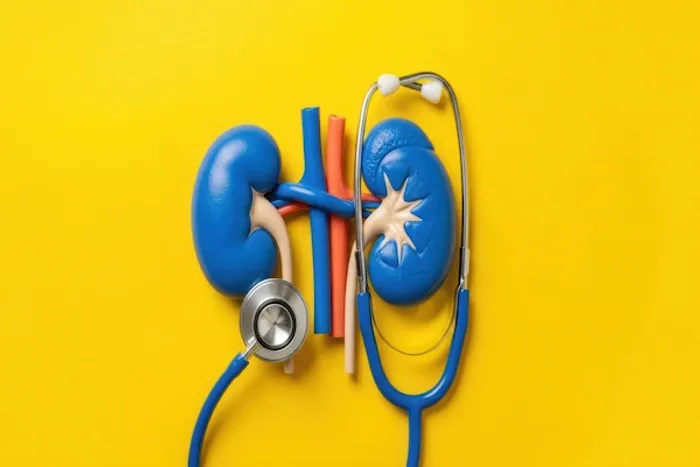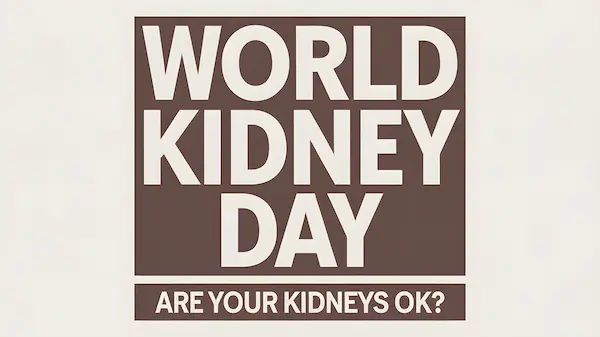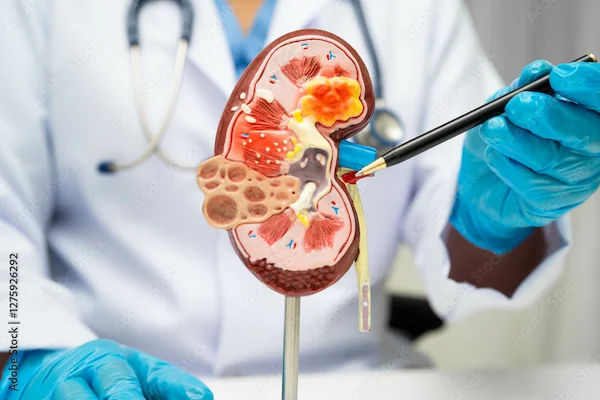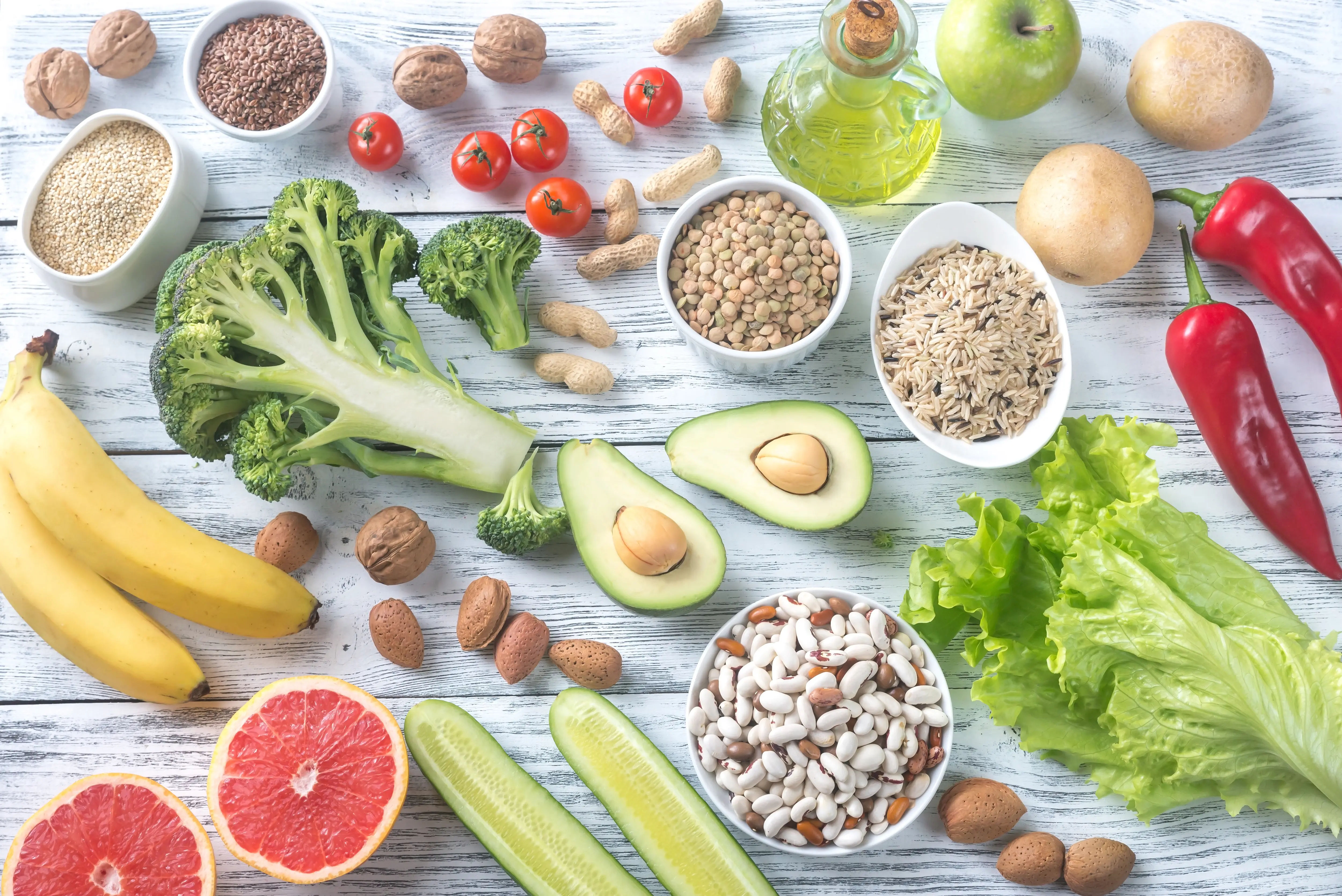Guide to Role Of Hydration In Kidney Health
Discover why staying hydrated is crucial for your kidneys. This guide explains the role of water in preventing kidney stones and supporting overall renal function.

Written by Dr. Shaik Abdul Kalam
Reviewed by Dr. D Bhanu Prakash MBBS, AFIH, Advanced certificate in critical care medicine, Fellowship in critical care medicine
Last updated on 13th Jan, 2026

Introduction:
Your kidneys are the unsung heroes of your body, working tirelessly around the clock to filter waste, balance fluids, and regulate blood pressure. But what fuels this critical cleansing process? The answer is surprisingly simple: water. Proper hydration is the cornerstone of kidney health, acting as the essential vehicle that allows these vital organs to perform their role effectively. When you don't drink enough, your kidneys struggle, potentially leading to everything from painful kidney stones to more serious long-term damage. This comprehensive guide will dive deep into the science of how water supports your kidneys, decode how much you really need to drink, and reveal the signs that you might be falling short. Let’s explore how you can harness the power of hydration to protect your kidney health for years to come.
Understanding Your Kidneys: The Body's Master Filter
Before we appreciate the role of water, it's crucial to understand what your kidneys do. These two bean-shaped organs, located just below your rib cage, are sophisticated processing plants.
What Do Your Kidneys Actually Do?
Your kidneys are responsible for several life-sustaining functions. Their primary job is to filter about half a cup of blood every minute, removing waste products and extra water to create urine. But they do far more than just produce urine. They also release hormones that regulate blood pressure, produce red blood cells, and ensure your bones remain strong by activating vitamin D. They meticulously balance the levels of key electrolytes like sodium, potassium, and phosphate in your body. This entire intricate process is dependent on a consistent and ample supply of fluids.
The Nephron: The Tiny Powerhouse of Filtration
Each kidney contains about one million tiny filtering units called nephrons. Each nephron consists of a filter (glomerulus) and a tubule. Blood enters the glomerulus, where water and small particles are filtered out. The tubule then reabsorbs necessary minerals and water back into the bloodstream while allowing waste products to pass through and become urine. Imagine an incredibly fine sieve that first collects everything and then a smart sorting system that puts the good stuff back. Adequate hydration ensures this system has enough fluid pressure to work efficiently without getting clogged or damaged.
The Vital Role of Hydration in Kidney Function
Water is not just a passive participant; it's the fundamental element that enables every single kidney function.
Water as the Transport System for Waste
Think of water as the river that carries away garbage. The waste products filtered by your kidneys, such as urea and creatinine, are dissolved in water. Without sufficient water, these toxins become concentrated in the blood and urine. This puts a strain on the nephrons, forcing them to work harder and potentially leading to damage over time. Proper hydration keeps the waste diluted and flowing smoothly, making the kidneys' job easier and more efficient.
Preventing Kidney Stones: The Dilution Solution
Kidney stones are hard deposits made of minerals and salts that crystallize inside your kidneys. They often form when urine becomes concentrated, allowing these minerals to stick together. The single most effective way to prevent them is to drink enough fluids—specifically water—to dilute the substances in urine that lead to stones. The National Kidney Foundation states that for stone formers, diluting the urine with high water intake is a critical part of prevention. It’s a simple yet powerful dilution solution.
Supporting Blood Flow and Blood Pressure
Your kidneys need a steady, rich flow of blood to perform their filtration duties. When you are well-hydrated, you maintain a good blood volume, which allows blood to flow freely to the kidneys. Chronic dehydration, however, can lead to a mild drop in blood volume. This can trigger a complex chain reaction that may elevate blood pressure (hypertension) over time. Since high blood pressure is both a cause and a consequence of kidney disease, maintaining good hydration is a key preventive measure for supporting healthy blood flow and keeping blood pressure in check.Consult Top Specialists
The Real Risks: Dehydration and Your Kidneys
Consistently failing to meet your body's fluid needs can have serious consequences for renal health.
Acute Kidney Injury (AKI) from Severe Dehydration
In cases of severe dehydration—often from illness, extreme heat, or excessive exercise without replenishing fluids—the kidneys can suddenly stop working properly. This is known as Acute Kidney Injury (AKI). The lack of fluid causes a dramatic drop in blood pressure, severely reducing blood flow to the kidneys and depriving them of oxygen. This can cause them to shut down. While often reversible with prompt fluid replacement, AKI is a serious medical emergency.
Chronic Dehydration and Long-Term Kidney Damage
More common, and perhaps more insidious, is the impact of mild but chronic dehydration. Habitually not drinking enough water means your kidneys are constantly working in a concentrated environment. This long-term strain is believed to contribute to the development of chronic kidney disease (CKD) over many years. Studies have suggested a link between low fluid intake and a faster decline in kidney function, particularly in those already at risk.
Can You Drink Too Much Water? Understanding Overhydration
Yes, it is possible, though rare, to drink too much water—a condition known as water intoxication or hyponatremia.
Hyponatremia: When Water Dilutes Essential Salts
Hyponatremia occurs when you drink such an extreme amount of water that it drastically dilutes the sodium levels in your blood. Sodium is essential for nerve and muscle function. Symptoms can include nausea, headache, confusion, and in severe cases, seizures and coma. This is most commonly seen in endurance athletes who drink massive quantities of water without replacing electrolytes. For the vast majority of people leading normal lives, this is not a concern. The key is to drink consistently throughout the day rather than consuming a huge volume all at once.
How Much Water Do You Really Need for Healthy Kidneys?
The "eight 8-ounce glasses a day" rule is a good starting point but is overly simplistic. Your individual needs are unique.
Moving Beyond the "8-Glasses-a-Day" Myth
The National Academies of Sciences, Engineering, and Medicine recommends an adequate daily fluid intake of about 3.7 liters (125 ounces) for men and 2.7 liters (91 ounces) for women. This includes fluids from all sources—water, other beverages, and water-rich foods like fruits and vegetables. A better, more personalized guideline is to drink enough so that you rarely feel thirsty and your urine is light yellow or clear.
Key Factors That Influence Your Hydration Needs
Your ideal daily water intake depends on:
• Climate: You need more fluids in hot or humid weather.
• Activity Level: Exercise and physical labor cause sweat loss that must be replaced.
• Overall Health: Fever, vomiting, or diarrhea increase fluid needs.
• Pregnancy/Breastfeeding: Women in these stages require additional fluids.
• Health Conditions: Those with a history of kidney stones are often advised to drink more than the average person.
Signs You're Not Drinking Enough Water
Your body sends clear signals when it's running low on fluids.
Early Warning Signs of Dehydration
1. Thirst (though you're already slightly dehydrated by the time you feel thirsty)
2. Fatigue or low energy
3. Dry mouth and bad breath
4. Headaches
5. Dizziness or lightheadedness
6. Muscle cramps
What Your Urine Color Tells You About Hydration
Your urine is one of the best indicators of your hydration status. Aim for a pale straw or light yellow color. Dark yellow or amber-colored urine is a classic sign that you need to drink more water. It means your urine is highly concentrated with waste products.
Best Fluids for Kidney Health (And What to Avoid)
Not all fluids are created equal when it comes to supporting your kidneys.
The Gold Standard: Plain Water
Plain water is undoubtedly the best choice for kidney function. It's calorie-free, caffeine-free, accessible, and exactly what your body needs without any additives.
Other Kidney-Friendly Hydration Options
• Sparkling Water: A great alternative if you crave carbonation (choose unflavored or naturally flavored without added sugar or phosphates).
• Infused Water: Adding slices of lemon, cucumber, or berries can make water more appealing. Lemon water is often highlighted as it contains citrate, which can help prevent stone formation.
• Herbal Teas: Non-caffeinated teas like peppermint or hibiscus can contribute to fluid intake.
• Water-Rich Foods: Cucumber, watermelon, celery, and oranges are over 90% water and help with hydration.
Fluids to Limit or Avoid for Optimal Kidney Function
• Sugary Sodas and Drinks: High in sugar and empty calories, linked to obesity and diabetes—two major risk factors for kidney disease.
• Excessive Caffeine: While moderate coffee/tea is fine for most, large amounts can have a mild diuretic effect and may contribute to dehydration in some people.
• Alcohol: Alcohol is a diuretic that promotes fluid loss and can dehydrate you, forcing your kidneys to work harder.
Conclusion: Making Hydration a Habit for Lifelong Kidney Health
The connection between hydration and kidney health is profound yet beautifully simple. By prioritizing adequate fluid intake, you are providing your body's master filtration system with the fundamental resource it needs to protect you from toxins, maintain stable blood pressure, and prevent painful complications like stones. It’s not about obsessively counting every glass but about developing a mindful habit of sipping water throughout your day, especially when you are active or in a warm environment. Remember, your kidneys work hard for you 24/7; giving them the water they need is one of the easiest and most effective ways to return the favor. Start today—fill up a glass of water and take a proactive step towards sustaining your kidney function for a healthier future. If you have a history of kidney stones, kidney disease, or other chronic conditions, consult a doctor online with Apollo24|7 to determine the precise fluid intake that's right for you.Consult Top Specialists
Consult Top Specialists

Dr. Rajib Ghose
General Physician/ Internal Medicine Specialist
25 Years • MBBS
East Midnapore
VIVEKANANDA SEBA SADAN, East Midnapore

Dr. S V Kulkarni
General Physician/ Internal Medicine Specialist
42 Years • MD (Medicine), F.A.C.P. , F.A.C.M. , F.G.H. , F.I.C.P. , F.D.I. , F.G.S.I., Advance Fellowships in Geriatrics, Industrial Health, Diabetes, Thyroid Diseases & Global Health
Mumbai
Apollo Hospitals CBD Belapur, Mumbai

Dr. Sudip Kumar Pore
General Physician/ Internal Medicine Specialist
11 Years • MBBS, MD Pathology
Kolkata
SOLACE OF SOULS(SOS) HEALTH CARE, Kolkata

Dr. Sriya Mukherjee
General Practitioner
7 Years • MBBS
Kolkata
Dr Sriya Mukherjee Clinic, Kolkata

Dr. Sougata Kumar
General Practitioner
8 Years • MBBS
East Midnapore
VIVEKANANDA SEBA SADAN, East Midnapore
Consult Top Specialists

Dr. Rajib Ghose
General Physician/ Internal Medicine Specialist
25 Years • MBBS
East Midnapore
VIVEKANANDA SEBA SADAN, East Midnapore

Dr. S V Kulkarni
General Physician/ Internal Medicine Specialist
42 Years • MD (Medicine), F.A.C.P. , F.A.C.M. , F.G.H. , F.I.C.P. , F.D.I. , F.G.S.I., Advance Fellowships in Geriatrics, Industrial Health, Diabetes, Thyroid Diseases & Global Health
Mumbai
Apollo Hospitals CBD Belapur, Mumbai

Dr. Sudip Kumar Pore
General Physician/ Internal Medicine Specialist
11 Years • MBBS, MD Pathology
Kolkata
SOLACE OF SOULS(SOS) HEALTH CARE, Kolkata

Dr. Sriya Mukherjee
General Practitioner
7 Years • MBBS
Kolkata
Dr Sriya Mukherjee Clinic, Kolkata

Dr. Sougata Kumar
General Practitioner
8 Years • MBBS
East Midnapore
VIVEKANANDA SEBA SADAN, East Midnapore
More articles from Kidney Disease
Frequently Asked Questions
1. Does lemon water help kidneys?
Yes, lemon water can be beneficial. Lemons contain citrate, which can help prevent calcium stones by binding with calcium in the urine and stopping crystal formation. It also makes urine less acidic, creating a less favorable environment for stones.
2. Can dehydration cause kidney pain?
Yes, severe dehydration can cause kidney pain or a dull ache in the back (where the kidneys are located). This is often due to the formation of kidney stones or a temporary condition called dehydration-induced kidney pain from the organs being stressed. If you experience persistent pain, it's important to seek medical advice.
3. What are the best fluids to flush your kidneys?
The absolute best fluid is plain water. It effectively dilutes urine and helps flush out waste products without any added sugars, sodium, or artificial ingredients. Other good options include coconut water (in moderation for its electrolytes) and certain herbal teas like dandelion root or nettleaf tea, though you should consult a doctor before using herbal remedies.
4. I find it hard to drink enough water. What can I do?
Try carrying a reusable water bottle with you as a visual reminder. Set hourly reminders on your phone. Use water-tracking apps. Enhance the taste naturally by infusing water with fruits like berries, citrus, or cucumber. Also, remember to eat water-rich foods like watermelon, celery, and soups.
5. How does hydration affect blood pressure in relation to kidneys?
When you're dehydrated, your body (and your kidneys) release hormones that cause blood vessels to constrict in an effort to conserve water and maintain blood pressure. This can lead to hypertension. Over time, high blood pressure can damage the delicate blood vessels in the kidneys, impairing their function. Proper hydration helps maintain normal blood volume and supports healthy blood pressure levels.

_4.webp)


